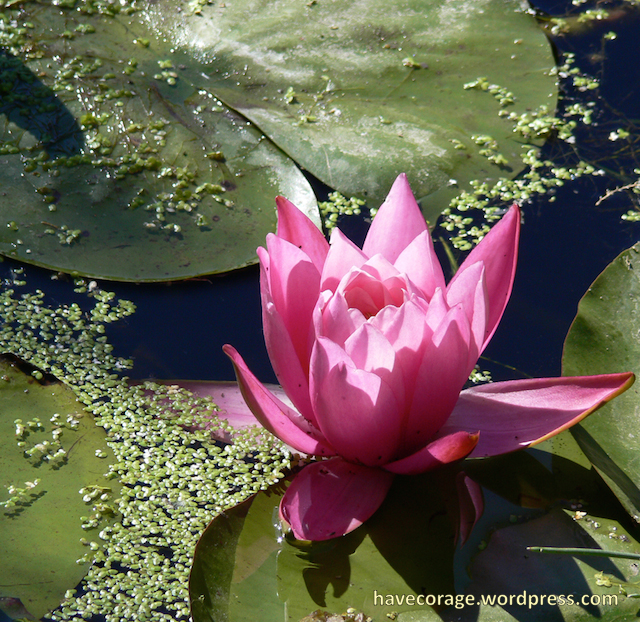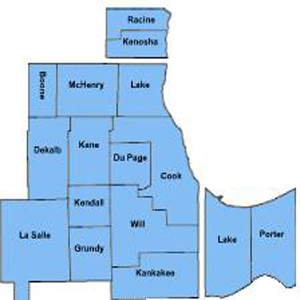Corage: The Astonishing Power of Gratitude
We like to hide our feelings, push them deep down away from everyone - and ourselves. But embracing gratitude can be a powerful tool to not only open ourselves to feelings, but work through them.
By Sally Eames
Last week, I read a blog post titled “Fuck You Spiritual People For Using Gratitude As A Bypass To Your Anger.” I could see where the author was coming from. His post voiced his frustrations and discontent so they would no longer fester within and feed resentments.
 Helping my clients feel their feelings is a big part of what I do as a coach; specifically the feelings they don’t like feeling. Those are the ones getting in their way. It takes a lot of energy to stifle a feeling instead of letting it move through you and go. My clients and I hang out in those feelings, exploring them, intensifying them, looking to see what else is available to them there. Anger is one of the emotions that people avoid—a lot—and I enjoyed reading about this particular approach to releasing it.
Helping my clients feel their feelings is a big part of what I do as a coach; specifically the feelings they don’t like feeling. Those are the ones getting in their way. It takes a lot of energy to stifle a feeling instead of letting it move through you and go. My clients and I hang out in those feelings, exploring them, intensifying them, looking to see what else is available to them there. Anger is one of the emotions that people avoid—a lot—and I enjoyed reading about this particular approach to releasing it.
So I understood what he meant by using gratitude as a way to bypass anger. I was recently a part of a Facebook conversation where a member of the group got really honest about their fears; their anger, their despair, their worries. Mostly, they received what they needed; other group members offering their support, letting them know they’d been heard, holding the space for them to be scared, angry, sad, apprehensive.
And then someone new popped into the conversation. Though I’m going to credit her with good intentions, she chastised us for dwelling on the negative, insisting we should focus on the positive, because we were irresponsible and defeatist by expressing sadness and fear. It was completely tone deaf to the situation and context, and essentially blamed the original poster for feeling bad about her situation and admitting it.
Fortunately, another poster who had joined the conversation at the start responded before I did, saying all I wanted to say, but much more articulately and gently than I would have through my fury. And then the original poster replied compassionately, clearly, and without backing down from their original post for a minute. It was gracious and firm and I was so jealous that I can’t be like that. I was all “SALLY SMASH! Stupid coach who projects her own fear of feeling her feelings on to someone else. Should not be allowed to work with people until she deals with her own shit.”
Which is all a long way to explain that I TOTALLY UNDERSTAND what the guy was saying when he wrote his article titled. We need to feel our anger. Squashing it down, avoiding it, saying it’s a bad thing, none of that is helpful or healthy. It festers and breeds resentment and bitterness, eats away at relationships and self-worth like acid.
However.
Gratitude is a wonderful way to help yourself through anger and despair and resentment. When my world fell apart five years ago, I knew that when I came out the other side, what I didn’t want to be was bitter and broken and angry. So along with letting myself experience my feelings whenever they came up, I instinctively looked for the good in my life. The things I was grateful for.
I found a lot. I had a beautiful apartment, three wonderful cats, a community of amazing and supportive friends and family — both locally and around the world. I had the time and the space to grieve and heal. There was so much to be thankful for and I worked to both be aware of it and to express my gratitude. Along with allowing myself to feel my rage, fear, guilt, sorrow and remorse, being grateful was an important part of my healing process.
Gratitude fosters happiness. Counting your blessings and expressing your thanks improves your mood. There are now studies, even have in neuroscience, to prove it. And it’s easy to practice. The Huffington Post has a lovely article on how to begin.
Gratitude isn’t something you should use as a way to avoid feeling things. You need to experience your emotions. But expressing gratitude is a way to be healthier and happier, right now. It’s a way to change your worldview, from one of suspicion and resentment, to one of happiness.
I have a facebook group, Twenty-One Days. (link) It’s all about expressing gratitude, and it’s open to anyone. Let me know if you’d like to join.
What are you grateful for?
What makes you happy about your life?
What great gifts have the rough spots in your life given you?
Sally Eames, CPCC, ACC operates Corage Coaching. She is a Certified Professional Co-Active coach and a graduate of the Coaches Training Institute. She is also an International Coach Federation Associate Certified Coach. For the full text of this column, please visit her blog. For more information on her work as a Co-active coach, please visit her site at havecorage.wordpress.com.
Justin Shimko is an award-winning writer and political analyst. He began as a reporter in his college days at the University of Oklahoma, writing for The Oklahoma Daily (rated as one of the best collegiate newspapers in the nation) and The Oklahoman, the statewide newspaper, winning awards from the CSPA and the Society of Professional Journalists. He later moved on to research and writing work for a number of political campaigns. His email is
[email protected]
Latest posts by Justin Shimko (see all)
Related
 Blog Posts
Blog Posts






Corage: The Astonishing Power of Gratitude
We like to hide our feelings, push them deep down away from everyone - and ourselves. But embracing gratitude can be a powerful tool to not only open ourselves to feelings, but work through them.
By Sally Eames
Last week, I read a blog post titled “Fuck You Spiritual People For Using Gratitude As A Bypass To Your Anger.” I could see where the author was coming from. His post voiced his frustrations and discontent so they would no longer fester within and feed resentments.
So I understood what he meant by using gratitude as a way to bypass anger. I was recently a part of a Facebook conversation where a member of the group got really honest about their fears; their anger, their despair, their worries. Mostly, they received what they needed; other group members offering their support, letting them know they’d been heard, holding the space for them to be scared, angry, sad, apprehensive.
And then someone new popped into the conversation. Though I’m going to credit her with good intentions, she chastised us for dwelling on the negative, insisting we should focus on the positive, because we were irresponsible and defeatist by expressing sadness and fear. It was completely tone deaf to the situation and context, and essentially blamed the original poster for feeling bad about her situation and admitting it.
Fortunately, another poster who had joined the conversation at the start responded before I did, saying all I wanted to say, but much more articulately and gently than I would have through my fury. And then the original poster replied compassionately, clearly, and without backing down from their original post for a minute. It was gracious and firm and I was so jealous that I can’t be like that. I was all “SALLY SMASH! Stupid coach who projects her own fear of feeling her feelings on to someone else. Should not be allowed to work with people until she deals with her own shit.”
Which is all a long way to explain that I TOTALLY UNDERSTAND what the guy was saying when he wrote his article titled. We need to feel our anger. Squashing it down, avoiding it, saying it’s a bad thing, none of that is helpful or healthy. It festers and breeds resentment and bitterness, eats away at relationships and self-worth like acid.
However.
Gratitude is a wonderful way to help yourself through anger and despair and resentment. When my world fell apart five years ago, I knew that when I came out the other side, what I didn’t want to be was bitter and broken and angry. So along with letting myself experience my feelings whenever they came up, I instinctively looked for the good in my life. The things I was grateful for.
I found a lot. I had a beautiful apartment, three wonderful cats, a community of amazing and supportive friends and family — both locally and around the world. I had the time and the space to grieve and heal. There was so much to be thankful for and I worked to both be aware of it and to express my gratitude. Along with allowing myself to feel my rage, fear, guilt, sorrow and remorse, being grateful was an important part of my healing process.
Gratitude fosters happiness. Counting your blessings and expressing your thanks improves your mood. There are now studies, even have in neuroscience, to prove it. And it’s easy to practice. The Huffington Post has a lovely article on how to begin.
Gratitude isn’t something you should use as a way to avoid feeling things. You need to experience your emotions. But expressing gratitude is a way to be healthier and happier, right now. It’s a way to change your worldview, from one of suspicion and resentment, to one of happiness.
I have a facebook group, Twenty-One Days. (link) It’s all about expressing gratitude, and it’s open to anyone. Let me know if you’d like to join.
What are you grateful for?
What makes you happy about your life?
What great gifts have the rough spots in your life given you?
Sally Eames, CPCC, ACC operates Corage Coaching. She is a Certified Professional Co-Active coach and a graduate of the Coaches Training Institute. She is also an International Coach Federation Associate Certified Coach. For the full text of this column, please visit her blog. For more information on her work as a Co-active coach, please visit her site at havecorage.wordpress.com.
Justin Shimko
Latest posts by Justin Shimko (see all)
Share this:
Related